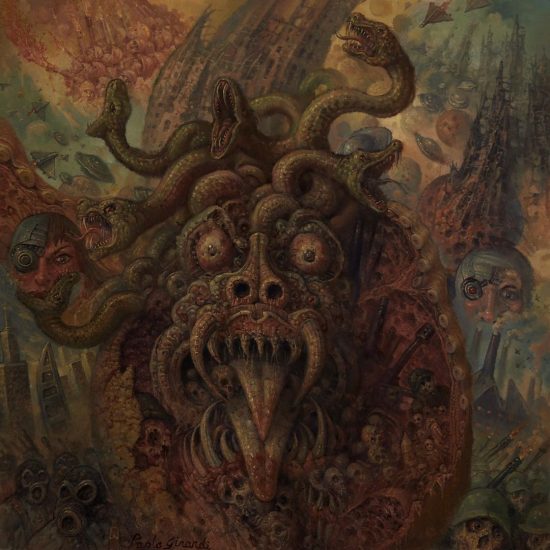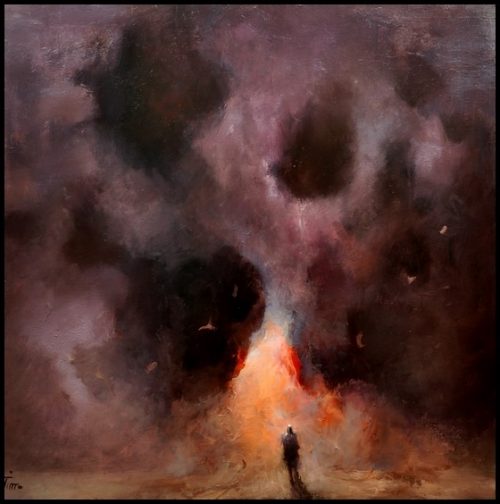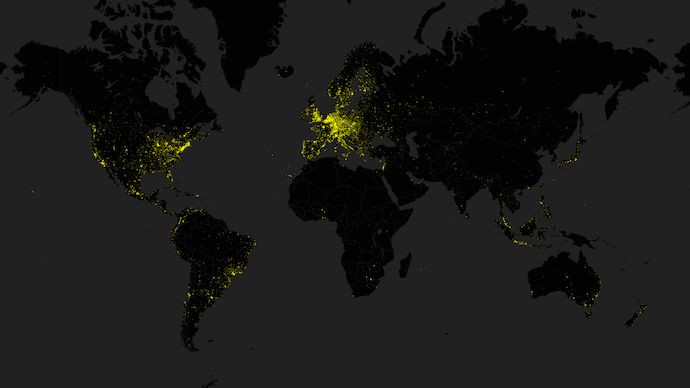
Painting by Paolo Girardi (for Voracious Lunacy, a 2022 split release by Heresy and Exorcizphobia)
These days a lot of people are expelling a lot of hot and cold air and a tremendous volume of written words about Artificial Intelligence (AI). There’s no consensus about whether AI will be a boon to human life or a dire peril, but everyone paying any attention to the phenomenon seems to agree that the technology will bring about stunning changes — and damned fast, so fast that our slow meat brains won’t be able to react quickly enough to tame the wild dangers it could unleash.
Those of us who’ve been life-long consumers of science fiction already have vivid visions of both the utopian and the dystopian futures that AI could produce, but what used to be only visions are rapidly becoming realities. The scale isn’t yet vast, but in small ways and large, we’re getting there, and for most of us there’s not much we can do about it, for better or worse. Anyone who thinks unregulated markets can be trusted to prevent AI-spawned damage haven’t thought hard enough, but anyone who thinks government regulators can find workable and timely answers is probably equally oblivious.
Small ways and large… In the grand scheme of things, what AI will do to entertainment, and more specifically to the creation of music, ranks on the smaller end of the scale. But in that niche the changes wrought by AI may occur as fast as anywhere else. As we shall see, the changes have already begun. Although those changes don’t yet seem to have made a noticeable impact in the micro-niches of extreme metal, the possibility provides food for thought. My own thought is that the risks to the kind of music we pay attention to at this site are likely to remain low (though I admit this might be wishful thinking). Continue reading »









